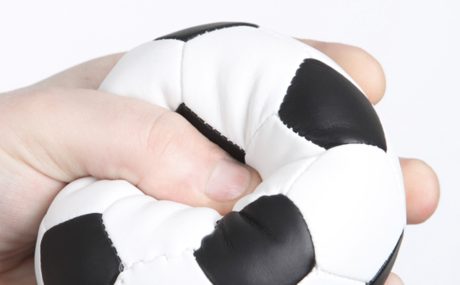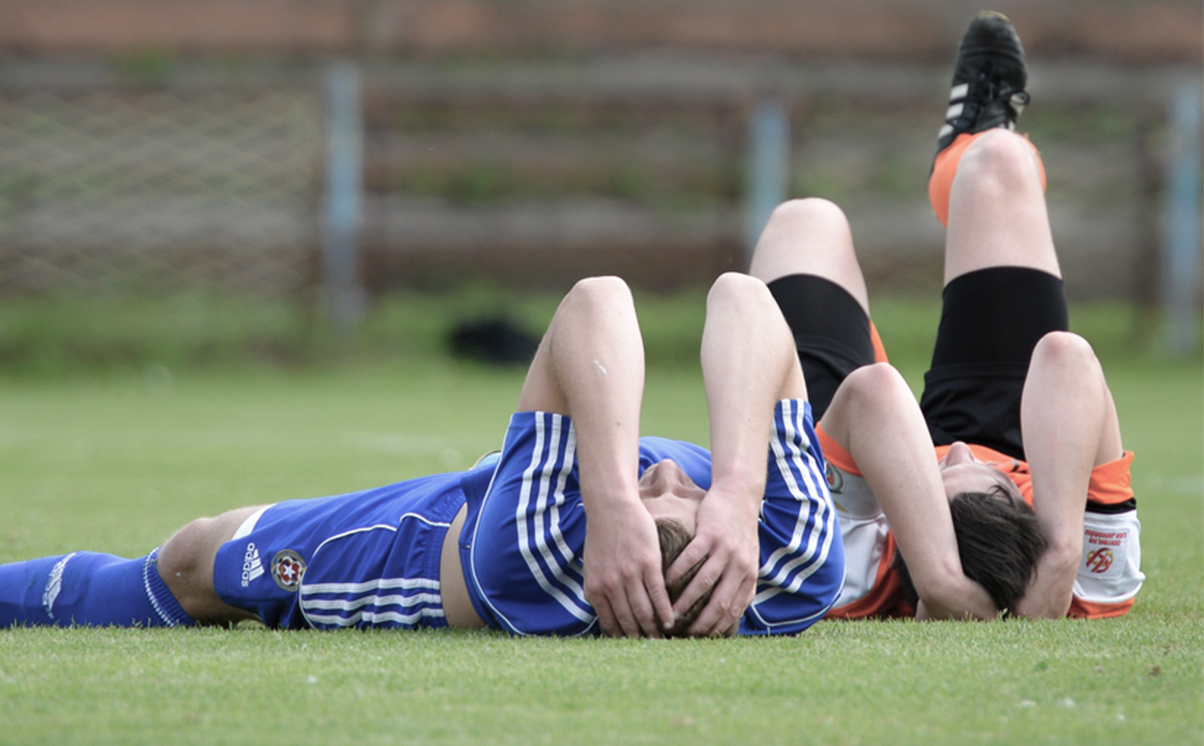Hearing of the JFK assassination is famously a moment when everyone can remember where they were. For a certain generation anyway. The death of Princess Diana is another. Barrington Atkins can remember exactly where he was when he heard the newsflash reporting Gary Speed’s suicide. In this article, Barrington looks at depression in professional football.
I’m not suggesting the death of the former Wales manager Gary Speed had worldwide impact. But in my world – working with ex-footballers of the same age – it was huge news. The circumstances of his death, suicide driven by depression, only made it more tragic.
The issue of depression in footballers has come up again recently with Northampton Town’s Marvin Sordell and Tottenham and England full-back Danny Rose both bravely speaking out about their personal struggles. Yet eight years on from the loss of Gary Speed, are we any further forward in dealing with the issue of mental illness in professional football?
Players lacking that extra yard of thought
The worlds of professional football and real life rarely intersect. And that’s usually for the best. Sometimes footballers express themselves in a way that, let’s say, fails to show them in the most positive light. Raheem Sterling has a tattoo of an AK47 on his leg to communicate his thoughts on gang crime. Gordon Strachan lost his TV work by clumsily associating the rights of convicted paedophiles with racist abuse.
It’s not totally their fault. Footballers’ celebrity has grown out of all proportion, to the point where they have become caricatures. We are saturated with them but have never known less about them. None of this helps start the conversation about mental illness.
Depressed? Run it off
Football is obsessed with confidence and winning. Confidence means that you have to be at your best when you’re feeling your worst, bullish when you at your most sheepish and permanently up for it at times when you are absolutely not.
And for someone to win, somebody else has to be a loser. The determination to come out on top, along with the inherent macho pressures to deal with issues like ‘real men’ (which normally means denying they exist or blaming someone else) all contribute to making mental illness and professional football uncomfortable bedfellows.
Believe me, it is rife in the game.
Consider footballers’ rituals. Lucky ties… pre-match routines… last out the tunnel… left shin pad on first… cross yourself three times… The list goes on. Is this harmless superstition or large-scale obsessive-compulsive disorder?
Booze, betting and bankruptcy
The number of alcohol and gambling problems that affect players is way higher than you may think. The same goes for bankruptcies – two in five Premier League players go broke within five years of retirement. Relationships are similarly affected – one third of players will divorce or separate within a year of hanging up their boots.
Can these all be put down to ignorance, bad advice and gold-diggers? Or is it a clear indication of the widespread mental health challenges facing professional footballers. It’s a high-octane, insanely pressurised environment with players often feeling they have nowhere to go and no-one to talk to.
The PFA, in cooperation with the Sporting Chance Clinic, operates a 24-hour telephone helpline for players. The use of this has grown from 160 calls in 2016 to over 500 in 2018. But is this enough?
Mental illness doesn’t pick sides
Two of the highest profile examples are those of Clarke Carlisle and Paul Gascoigne. Two players from opposite ends of the footballing spectrum.
A former chairman of the PFA and successful contestant on TV quiz show Countdown, Carlisle was an average player. But he is an intelligent man and sophisticated thinker who campaigns for mental health awareness. He attempted suicide in 2014 by stepping in front of a lorry on the A64 near Bishopthorpe, North Yorkshire.
Gazza, of course, was a sensational player with limited education. He seems to have been committing slow suicide for a couple of decades. A well-known football broadcaster – who I won’t embarrass here – told me that all the major sports media outlets have had obituaries on Gascoigne ready to go since the mid-2000s.
Countdown to tragedy
Carlisle and Gascoigne are two of the more respected and revered footballers of the past 30 years in their different ways. Yet neither has been able to cope with their individual battles with mental illness with anything like the dexterity they showed in other areas of their life.
So what chance does Marvin Sordell stand? A League Two journeyman, approaching 30 and facing the reality of a rolling contract for another few years before… well, who knows?
How many others are there bubbling under the surface but are not yet brave enough or lucky enough to have found a voice. These are names and faces we don’t recognise from fabulous Wembley goals or erudite TV appearances.
We can only hope it doesn’t take another tragic newsflash to tell their story. And, in the process, bring to the fore an issue that’s not going away and has been hidden from view for far too long.
Additional information and resources
- The PFA provides members with a 24/7 counselling telephone helpline. This ’round-the-clock’ support is available to all members past and present. Find out more here – PFA members 24/7 counselling helpline
- Article in The Guardian on increased numbers of footballers seeking help with mental health problems – Footballers seeking mental health help in record numbers – but it’s good news
- Another article in The Guardian on the work by charities, the PFA, clubs and players that’s helping the sport open up – ‘They’ve just scratched the surface’ – football tackling mental health but more can be done
You can find further information regarding our expertise, experience and team on our Football Injuries, Sports Injury and Clinical Negligence pages.
If you require assistance from our team, please contact us or alternatively request a call back from one of our lawyers by submitting this form.
Subscribe – In order to receive our news straight to your inbox, subscribe here. Our newsletters are sent no more than once a month.




